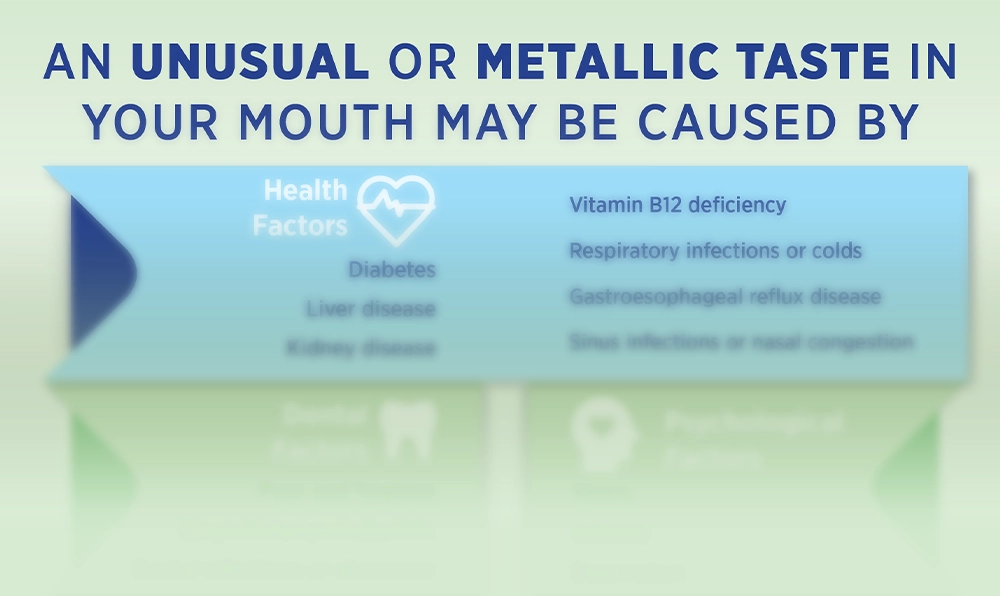
Tongue, lip, and cheek piercings can sometimes cause a bothersome metallic taste in your mouth. This unusual sensation is common but typically harmless. Understanding the potential causes and how to minimize the metal flavor can help you adjust to your new oral piercing.
There are a few reasons oral piercings can lead to a metal mouth sensation:
When you first get your tongue, lip, or cheek pierced, some bleeding and mixing of blood with your saliva is normal. The iron in blood has a metallic taste, so this temporary bleeding can cause a metal flavor for the first few days as the area starts healing. However, the blood and metal taste should diminish within a week as initial swelling goes down.
You may also like: Dry Mouth Causing A Metallic Taste?
Even after healing, oral piercings are prone to biofilm buildup. Biofilms are thin sticky layers of bacteria, proteins, and metals that coat the surface of the jewelry. Small amounts of this biofilm coating can mix with your saliva as the piercing shifts around in your mouth, leading to a mild metallic flavor. Denser buildup that flakes off can make the taste more pronounced.
Galvanic reactions can also contribute to a metal mouth. Different metals have different electrical charges. When two dissimilar metal materials are in contact with an electrolytic solution like saliva, a small electrical current is generated. This current essentially corrodes the metals through oxidation, releasing more metallic ions into your mouth that alter the taste.
The composition and quality of the jewelry itself also plays a role. Low-quality metals like nickel often impart a metallic flavor. But even high-grade surgical steel or titanium can have coatings that wear off over time, exposing the base metal and causing a metal taste.
While you probably won’t be able to eliminate a metal mouth completely, these tips can help reduce the intensity:
With proper piercing care and high-quality, compatible jewelry metals, the metallic taste of a new tongue, lip, or cheek piercing should mellow over time. But if it persists or worsens, consult your piercer or doctor to rule out infection or other complications requiring treatment.
